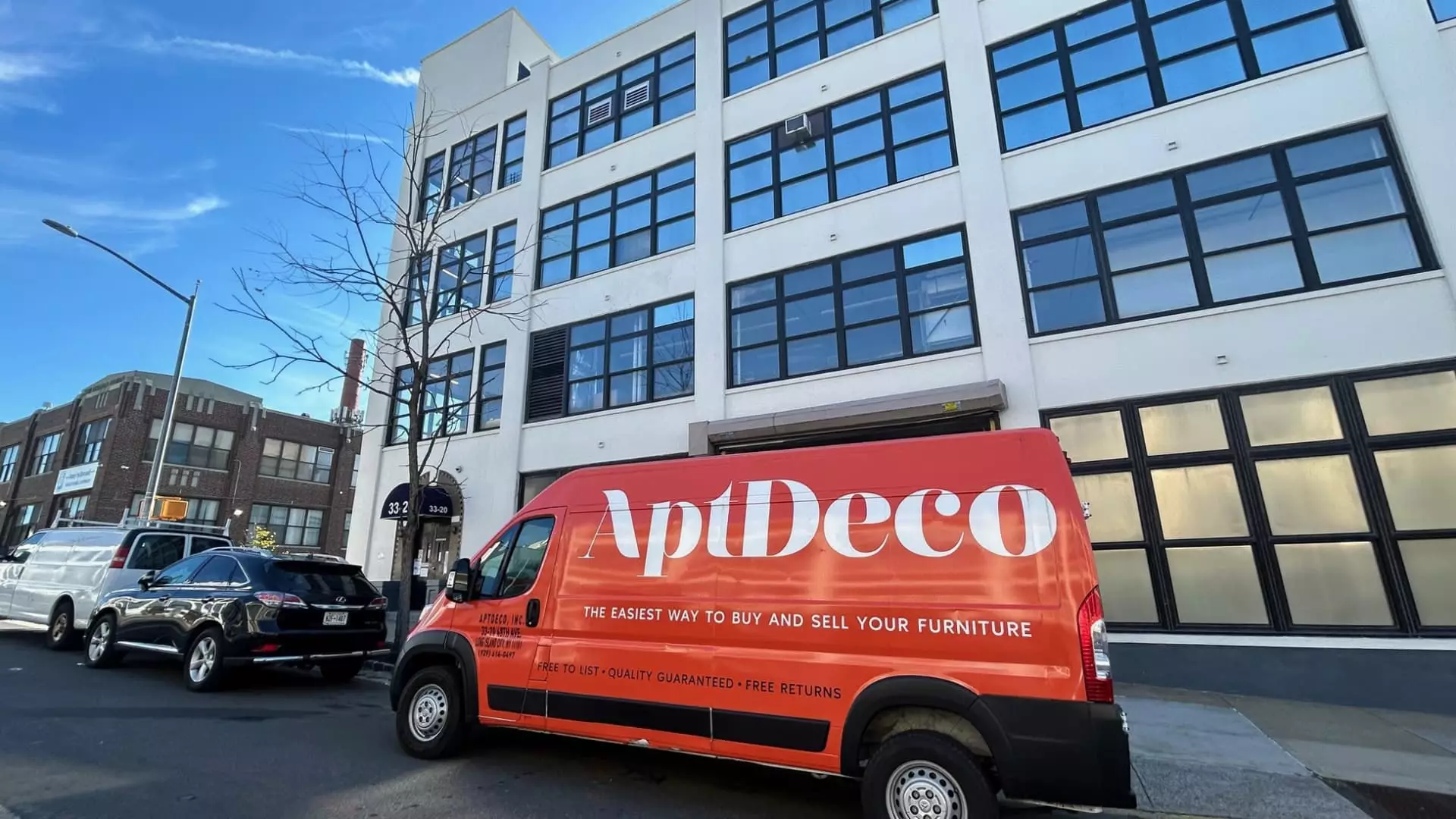As global awareness of environmental issues rises, furniture waste has emerged as a contentious topic. In the United States alone, approximately 12 million tons of furniture finds its way into landfills each year, according to the Environmental Protection Agency. Alarmingly, much of this discarded furniture is still in good condition, often less than fifteen years old. This waste is not just a visible blight; it also contributes significantly to carbon emissions, as decomposing furniture releases methane—a potent greenhouse gas—into the atmosphere. The challenge lies in the inherent difficulties associated with the recycling and resale of furniture, making it imperative that innovative solutions are sought.
Unlike the burgeoning thrift market for clothing hosted by platforms like Poshmark and Thredup, the furniture sector presents a unique set of obstacles. The sheer size and weight of items complicate the logistics of selling and transporting them. Online platforms such as Craigslist and Facebook Marketplace provide spaces for furniture sales, but they do little to alleviate the buyer’s burden of arranging for pickup and delivery, which can add significant time and cost to the transaction. Furthermore, these transactions involve personal safety risks, as buyers and sellers are often strangers conducting business in each other’s homes.
In response to these challenges, AptDeco has emerged as a pioneer in the online resale furniture market. Based in New York, this startup offers a streamlined platform to facilitate the buying and selling of used furniture. What sets AptDeco apart is its end-to-end service, which includes the pickup and delivery of items. This model significantly mitigates the hurdles of logistics and safety for consumers looking to reduce their furniture waste footprint. The company also partners with major retailers such as West Elm and Pottery Barn to manage the resale of floor models and returned items directly from the customers’ homes.
Founder and CEO Reham Fagiri highlights the environmental benefits of extending the lifecycle of furniture. “By altering the trajectory of furniture waste, we are not only reducing the demand for new production but also lessening the pressure on our forests and diminishing the supply chain’s carbon emissions,” she states. AptDeco plays a vital role in the circular economy, where the lifecycle of products is monitored and optimized to minimize waste.
For furniture retailers, returns represent a significant source of waste. Traditional systems involve transporting returned items back to distribution centers—an expensive and emissions-heavy process. AptDeco, however, has innovatively tackled this waste by enabling retailers to sell returned items directly from the customer’s home, eliminating unnecessary transportation.
By utilizing data from their resale operations, AptDeco effectively prices items to sell quickly, often within just a week of listing. This efficiency not only appeals to consumers seeking affordable options—often at discounts of up to 50% off retail prices—but also positions retailers to recover losses from returns more effectively.
While AptDeco’s services are not without a cost, charging a commission that ranges from 15% to 60% depending on various factors, the benefits often outweigh the expenses. Kathleen O’Brien, a satisfied customer, emphasizes the importance of reducing her own carbon footprint through mindful purchasing choices. For her, AptDeco represents a feasible avenue to make sustainable living a reality without sacrificing style or quality.
The operational success of AptDeco has attracted considerable investor interest, with backing from firms such as Initialized Capital and Comcast Ventures. Their commitment to contributing to the circular economy and sustainable practices resonates with investors looking for long-term gains in climate-friendly startups. AptDeco’s ambitious goal has led to significant environmental benefits—offsetting over 19 million pounds of carbon dioxide, equivalent to the emissions from approximately 6.5 million cars.
As furniture waste continues to rise, it is crucial for both consumers and businesses to explore sustainable solutions. Startups like AptDeco exemplify how innovative approaches can mitigate environmental impact while providing practical benefits to consumers and retailers alike. As awareness of eco-conscious living expands, the evolution of the furniture resale market marks a promising step toward reducing waste and promoting sustainability in everyday life. It is a call to action; the time has come for all of us to consider our consumption habits and engage in practices that foster a healthier planet for future generations.

